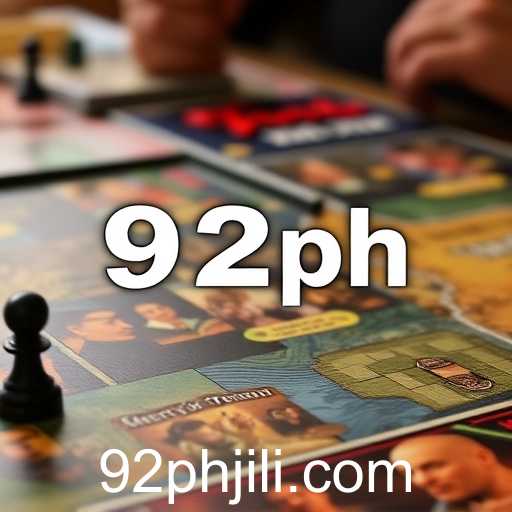Dive into the fascinating world of board games and explore their historical evolution and impact on modern entertainment.
Board games have been a source of entertainment for centuries, captivating players of all ages with their unique blend of strategy, chance, and social interaction. From ancient civilizations to today's digital era, board games have continuously evolved, reflecting cultural shifts and technological advancements. This article delves into the rich history and enduring appeal of board games, with '92ph' serving as a symbol of their diverse categories and innovative transformations.
The origins of board games can be traced back to ancient civilizations. One of the earliest known board games, Senet, was played in Egypt as far back as 3100 BC, highlighting the universal appeal of strategic gameplay. As time progressed, games like Chess, originating from India around the 6th century, showcased the period's intellectual pursuits, introducing complex tactics that still challenge players today.
The Renaissance period saw the proliferation of board games throughout Europe. Games such as 'The Game of the Goose' introduced the concept of racing to a finish line, a theme that continues in many modern board games. As printing technology improved, board games became more accessible, with mass production allowing different versions and styles to reach a broader audience.
In the 20th century, board games experienced a golden age with titles like Monopoly and Scrabble becoming household staples, each offering unique elements that appealed to various interests. Monopoly's theme of property trading resonated with a growing capitalist society, while Scrabble offered an educational twist, integrating language and mathematics. The '92ph' category reflects this burgeoning diversity, showcasing games that break traditional norms and incorporate various themes, mechanics, and storytelling elements.
Today, the advent of digital technology has transformed the board game landscape, offering players new ways to engage with classic and contemporary titles. The Internet allows for global multiplayer experiences, while apps and digital formats bring traditional tabletop experiences to screens worldwide. This evolution ensures that board games remain relevant in an ever-changing entertainment market.
Board games continue to thrive, with new designs pushing creative boundaries. Many games now include intricate storylines, cooperative gameplay, and even legacy components that alter the game permanently as it progresses. '92ph' effectively encapsulates this innovation, highlighting the diverse range of modern board games available to enthusiasts.
In summary, board games have a timeless appeal that transcends generations, adapting to cultural and technological changes while maintaining their core element of fun. Whether through strategic competition, educational value, or cooperative play, board games remain a beloved pastime, bringing people together in a shared journey of exploration and enjoyment.




